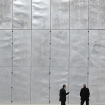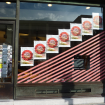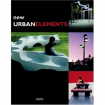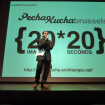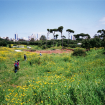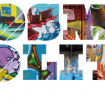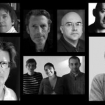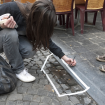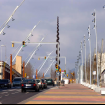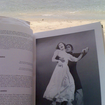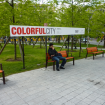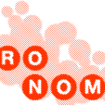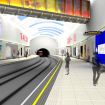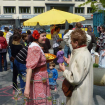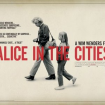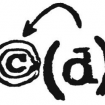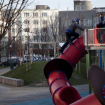Human Cities Festival 2010
Human Cities Symposium
Conferences and workshops
for a multi-faceted presence in the town
One can only speak of urbanism when one is present, is part of the city… such is the challenge of public space. The symposium will adress this issue through two days of conferences and workshops, with almost twenty researchers, urbanists, architects, graphic designers and artists share their ways to be present in the city, and the methods they developed to this aim.
Tickets
€ 100,00
Students and elders (-25/+60) € 40,00
Allows for a free entry at the evening conferences upon booking and subject to available seating.
Online
Telephone
+32 (0)2.507.82.00
Bozartickets desk
rue Ravensteinstraat 18,
B-1000 Brussels
Cum 07 May 2010, 09:00 ÖÖ
Jour 1 : Conférences
09:05 — Luca Pattaroni (CH)
La ville ensemble, émancipations et tyrannies dans l’espace commun d’un monde urbain : ces trois étapes permettent d’esquisser quelques pistes pour une action publique renouvelée visant à la composition d’une ville véritablement plurielle, qui fasse place aux personnes dans leurs différences de rythmes, de conviction et de capacité et aux expériences qui se tiennent aux limites du politique comme l’attachement, la convivialité et la créativité.
Axe 1 : La ville outil
10:00 — Paolo INGHILLERI (I)
Communautés créatives
Il sera ici question de la façon dont les lieux et les villes peuvent devenir des artefacts créatifs vivants à travers nos expériences, nos conflits et nos désirs.
Notre identité est étroitement liée aux endroits et aux objets de notre vie quotidienne. Les matériaux tels que la pierre, la brique, le fer ou le plastique sont constitutifs des bâtiments, des rues, des institutions, du mobilier, des vêtements. Ce sont des matériaux solides inanimés : les processus psychologiques des êtres humains leur donnent un sens et une vie. Tous ces artefacts produisent et incorporent les expériences. Les concepts en tant qu’émotions géographiques, design viscéral ou expérientiel déploie leur influence sur les disciplines urbaine et d’architecture. Nous focaliserons notre attention sur la possibilité de créer de nouvelles formes urbaines et sociales grâce aux micro-attitudes des individus et des groupes d’une ville donnée. Nous discuterons en petites communautés et sur des pratiques susceptibles d’assouvir nos désirs, d’optimiser les expériences. Ce qui est intéressant c’est que ces attitudes sont caractérisées par des micro-conflits et de petites asynchrones entre le soi et la société : de nouvelles formes de rupture et d’intégration qui produisent de grands changements dans les sociétés et les villes à travers la planète et maintiennent des alliances inconscientes avec le passé et la tradition.
10:35 — Tim FENDLEY (UK)
Legible London – un système de navigation pour les capitales
Le concept de « Legible London’ » a été proposé en 2004 pour faire face aux problèmes auxquels étaient confronté de nombreux voyageurs dans la capitale britannique. En 2007, un prototype de système de navigation multi-modal a été commandé pour une zone limitée du West End afin de tester les méthodologies, de découvrir des points de recherche méconnus et de fournir un certificat de concept. Il a été distribué en novembre et évalué en février de l’année suivante. Son évaluation a révélé qu’il s’agissait alors d’un des projets les plus détaillés qui existe à ce jour. L’un des principaux constats est que si un utilisateur se trouve face à une information d’orientation précise en temps et données et fiable, cela l’incitera à opter pour la marche comme moyen de transport alternatif pour certains trajets qui sont normalement desservis par les autres modes de transport. La recherche a démontré que de nombreux trajets souvent fait via le métro pourraient être plus rapidement effectués à pied et permet également d’apporter des bénéfices additionnels pour la santé, la stimulation d’une économie locale et une amélioration de l’environnement local et de la société. Une compréhension des systèmes de plans destinés aux marcheurs est au centre du débat, ainsi qu’une gamme de ressources de données centralisées pour connecter les informations et leurs fournisseurs. Cette discussion permet de fournir un arrière-plan aux recherches et aux méthodologies derrière le concept de base: la formulation de l’idée et la création de solutions prototypes.
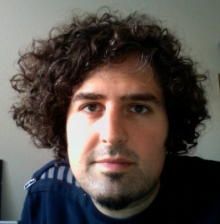
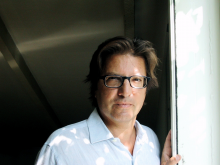
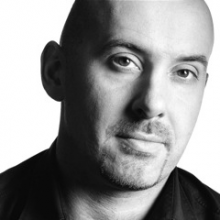
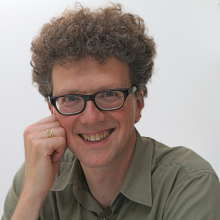
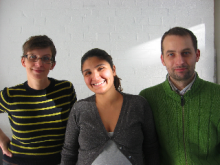
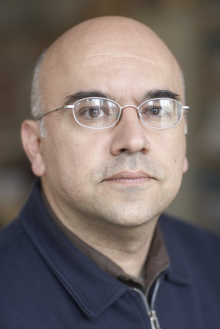
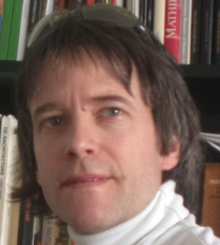
Cts 08 May 2010, 09:20 ÖÖ
Morning Workshop A
THE TOWN AS A TOOL
09:20 — Jean-Michel DECROLY & Olivier GOSSELAIN (BE)
ULB
Sensory walks in Brussels.
Using the relations between the body and the material environment, they present the results of an experience of an urban itinerary where students were encouraged to discover the town using all their senses, and trying not to give priority to what they see.
09:40 — Sabine GUISSE (BE)
ISACF – La Cambre
Public spaces “empowering” and “disempowering”, users between town as a tool and suffered town.
Describing the capacitating and decapacitating potential of space for each figure of interaction between users and the urban environment.
Cts 08 May 2010, 09:20 ÖÖ
Morning Workshop B
THE LABORATORY TOWN
09:20 — Matej NIKISIC (SLO)
UIRS
Revealing users’ mental images of urban public space.
Getting to know user’s mental image by in-depth interviewing, revealing the strong relation between the usage patterns of urban spaces and user’s mental images of these spaces.
09:40 — Barbara GOLICNIK MARUSIC (SLO)
UIRS
Mapping of dynamic patterns of users to inform public space design.
This research is a critical inquiry about spatial relationships between occupancy and the physical structure of squares and parks in city centres. It focuses on usability and the spatial capacity of places, from two different angles.
10:00 — Petra MARGUC (F)
Polimorph
Pluridisciplirary approaches, participation and integration into urban projects.
Alongside recent in situ productions, Petra will illustrate the tools and methods Polimorph is developing to investigate and design urban environments in a way to include multiple actors into the process.
Cts 08 May 2010, 09:20 ÖÖ
Morning Workshop C
THE MEDIATING TOWN
09:20 — Isabelle DOUCET (UK)
Manchester Architecture Research Centre
Interdisciplinary and/or Transdisciplinary city-making.
Cities are to be developed in both a interdisciplinary and transdisciplinary manner. This talk aspires to look into some of the tensions that continue to sabotage an elaborate mediation of urban questions.
09:40 — Masa CVETKO (SLO)
ProstoRož
ProstoRož association.
ProstoRož is a continuous project of public space cultivation, its goal developing a method of reviving and arranging of the degraded urban spaces.
Cts 08 May 2010, 09:20 ÖÖ
Morning Workshop D
ORCHESTRATING THE TOWN
09:20 — François JEGOU (BE)
Strategic Design Scenarios
Supporting social change and sustainability on the territory. Residences of the public innovation laboratory 27e Region in France.
Presentation of 15 ‘residences’ intended as long period immersions of multidisciplinary design-driven creative teams in local public institutions.
Cts 08 May 2010, 02:00 ÖS
Afternoon Workshop A
09:20 — Viviana NAROTZKY, Beth GALI, Josep M. SERRA (SP, Santa Cole), Josep BOHIGAS ARNAU (BOPBAA Arquitectes)
Barcelona’s Transformation and visions of the 21st Century City.
Spanish political transition, the rise of the nationalist discourse in Catalonia, design and architecture provided Barcelona with the foundations of its new urban narrative. The concepts of local identity and modernity materialized in urban environments and everyday objects accessible to everyone.
Cts 08 May 2010, 02:00 ÖS
Afternoon Workshop B
14:00 — Wouter VANDERSTEDE (Kind & Samenleving), Peter & Julie Anne VERBEELEN (BE, Turtlewings)
Spatial analysis with/by children.
How can we take advantage of children’s own spatial perspective for analysis and qualitative design of public space? Presentation of several experiments meant to listen to youth and involve them when designing their public spaces.
Cum 07 May 2010, 12:00 ÖÖ
Afternoon Workshop C
14:00 — Thomas ERMACORA (IT/UK), Clear Village
Clear Village.
The intention of this initiative is not to build a ‘perfect place’, but rather to foster a dynamic, living community which embraces principles, technologies and forms of governance that allow for a more sustainable future of living and can provide a benchmark for other communities to follow.
Cum 07 May 2010, 12:00 ÖÖ
Afternoon Workshop D
14:00 — Roger BURTON (BE), BRASS
Pas de Quartier.
Presentation of the “Pas de Quartier!” web platform project and its theoretical back office, plus perspectives for developing it as a tool for urban action. “Pas de Quartier” will try to show and to voice this territorial layer-cake, by focusing on creative use of formal and popular maps of the urban environment in a neighborhood.
Öne çıkanlar
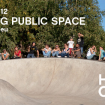 updates
updates
Festival Human Cities: Online video!
Festivaller
15 – 31 Mart 2012
Human Cities Festival 2012: Reclaiming Public Space
29 Eylül – 03 Ekim 2010
Brussels Istanbul: Kamusal Alan Tasarlamak
06 – 16 Mayıs 2010


